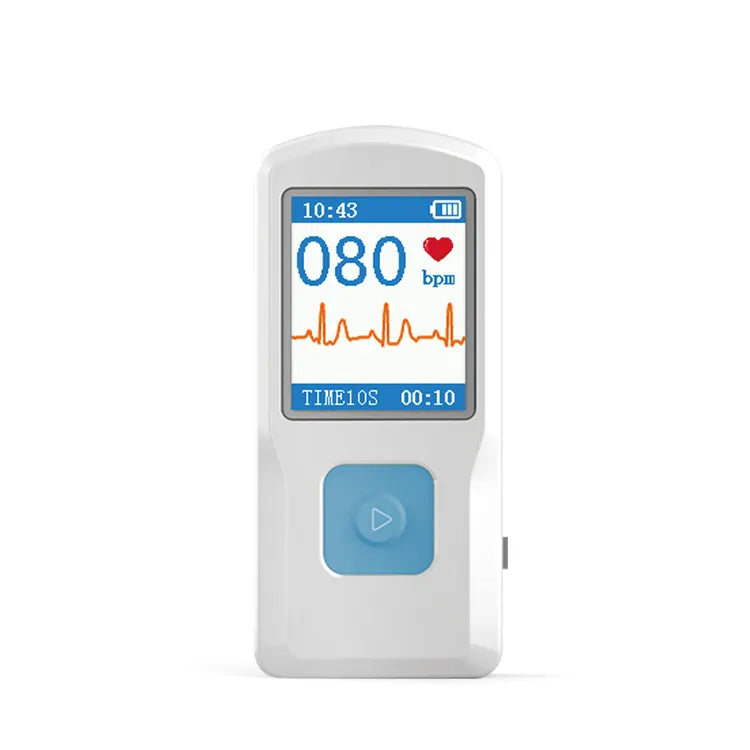Home Healthcare with Hemoglobin Meters

What is anemia and why it is concerned?
Anemia is the most common disorder of the blood, affecting about 25% of the global population. Anemia is a condition characterized by a lower-than-normal number of red blood cells or a reduced hemoglobin concentration within them. Hemoglobin is essential for carrying oxygen, and insufficient red blood cells or hemoglobin leads to a decreased ability to transport oxygen to the body's tissues. This results in symptoms like fatigue, weakness, dizziness, and shortness of breath.

The healthcare landscape has undergone a profound transformation in recent years, with a growing emphasis on tailored and readily available solutions. Amid this ever-evolving terrain, the adoption of hemoglobin meters in home care has risen as a formidable asset.Departing from the confines of clinical environments, these devices are reshaping how individuals oversee their well-being within the sanctuary of their homes. In this article, we will delve into the multifaceted and substantial applications of hemoglobin meters in home care,underscoring their pivotal role in fostering well-being and facilitating early disease detection.
Understanding hemoglobin meters
Before exploring their practical uses, it's essential to grasp the fundamental concept of hemoglobin meters.Hemoglobin meters are compact medical instruments meticulously engineered for gauging the hemoglobin concentration in an individual's blood. Hemoglobin, a pivotal protein, assumes the vitalresponsibility of oxygen transportation throughout the entire body.Thus, it emerges as an indispensable metric for comprehensively evaluating one's health status.Who needs a hemoglobin meter
Hemoglobin meters can be beneficial for a wide range of individuals in various situations. Not only used for people diagnosed with anemia, also contain about these groups of people. Here are some groups of people who may benefit from using hemoglobin meters:
Pregnant women

Anemia, characterized by a lower-than-normal hemoglobin level, can be particularly concerning during pregnancy.Hemoglobin carries oxygen to the body's cells and to the developing fetus.Anemia in pregnancy can lead to fatigue, weakness, and potentially harmful complications for both the mother and the baby.
Hemoglobin testing during pregnancy is typically conducted at various points, such as the first prenatal visit and at regular intervals throughout gestation. This ongoing monitoring allows healthcare providers to track changes in hemoglobin levels. It is especially important because pregnancy itself can lead to changes in blood volume and hemoglobin levels. Detecting and addressing anemia promptly is crucial to ensure the health of the mother and the baby.
Anemia during pregnancy can increase the risk of complications such as preterm birth and low birth weight. Maintaining optimal hemoglobin levels during pregnancy is essential for the health of both the mother and the developing fetus.Home monitoring with these devices empowers expectant mothers to keep a close eye on their hemoglobin levels, ensuring a healthier pregnancy journey and reducing the risk of complications.
People who needs plastic surgery

In the realm of plastic surgery, the pursuit of aesthetic enhancement and rejuvenation is paramount.However, behind the scenes of these transformative procedures lies a critical aspect often overlooked—the need for hemoglobin testing.While not a universal requirement, hemoglobin testing plays a pivotal role in ensuring the safety and success of certain plastic surgery procedures.
One of the primary reasons why the plastic surgery crowd may need hemoglobin testing is to detect anemia. Anemia, characterized by a lower than normal hemoglobin level, can significantly impact a patient's ability to heal after surgery. It can lead to complications such as delayed wound healing, increased risk of infection, and prolonged recovery times. Identifying anemia before surgery allows surgeons to take appropriate precautions or consider alternative treatments to mitigate these risks.
Before undergoing plastic surgery, prospective patients typically undergo a comprehensive pre-operative assessment.This assessment is a crucial step in determining a patient's candidacy for the procedure and assessing their overall health.Hemoglobin testing is an integral component of this evaluation process.A healthy hemoglobin level indicates the body's capacity to transport oxygen efficiently, which is essential for a safe surgery and optimal recovery.
Blood Donors

Hemoglobin levels are a key criterion for blood donation, as they reflect the donor's ability to provide a sufficient quantity of healthy blood. Regular blood donation can lead to a temporary decrease in an individual's hemoglobin levels.This is why it's crucial to monitor the hemoglobin levels of frequent blood donors. Hemoglobin meters enable healthcare professionals to track the hemoglobin levels of regular donors and ensure that they remain within a safe range.Monitoring prevents complications associated with low hemoglobin, such as fatigue and weakness.
Seniors

Many seniors have chronic health conditions such as diabetes, kidney disease, or heart disease. These conditions can affect hemoglobin levels and lead to anemia. Some medications commonly prescribed to seniors can affect hemoglobin levels. Regular hemoglobin testing allows healthcare providers to monitor the impact of medications on an individual's hemoglobin levels. Adjustments to medication regimens can be made if necessary to minimize side effects and ensure the best possible health outcomes.
Hemoglobin meters enable seniors to monitor their hemoglobin levels regularly, providing valuable data to their healthcare providers. This monitoring helps in managing chronic diseases effectively, preventing complications, and optimizing treatment plans.
Assessing malnourished children

In a world where access to proper nutrition remains a challenge for many, malnutrition continues to affect millions of children globally. Addressing malnutrition in children requires precise monitoring of their health. Malnutrition is a complex issue, and it can manifest in various forms, including undernutrition, overnutrition, and micronutrient deficiencies. Undernutrition, characterized by insufficient intake of essential nutrients, can lead to a range of health problems,
including anemia. Anemia, in particular, is often associated with malnourished children and can have serious consequences for their growth, development, and overall well-being.
Hemoglobin meters are not only diagnostic tools but also essential for monitoring the progress of malnourished children during treatment and interventions. Regular hemoglobin testing helps healthcare professionals evaluate the effectiveness of nutritional supplementation, dietary changes, and medical treatments aimed at addressing malnutrition and anemia. Adjustments to treatment plans can be made based on real-time hemoglobin measurements, ensuring that children receive the best possible care.
A quick and painless blood test using these devices can provide immediate results, enabling healthcare providers to assess the severity of anemia and tailor interventions accordingly.
Home Healthcare Providers

Professional home healthcare providers often use hemoglobin meters to assess the health of their patients in a home care setting. This is particularly useful for individuals who are unable to visit a healthcare facility regularly.
In addition, hemoglobin meters are also suitable for some health-conscious people. It can help them to check their hemoglobin levels, promoting early detection of any issues.
In conclusion
In summary, the versatility of the hemoglobin meter makes it an invaluable tool accessible to a broad spectrum of individuals. In early detection and prevention management, this portable device not only offers convenience for at-home testing but also serves as a reliable means of monitoring one's health, proving particularly beneficial for various demographic groups.
WE RECOMMEND
Related posts
- Subscribe MedInsights
- Subscribe MedInsights
- Subscribe MedInsights
- Subscribe MedInsights
- Subscribe MedInsights











